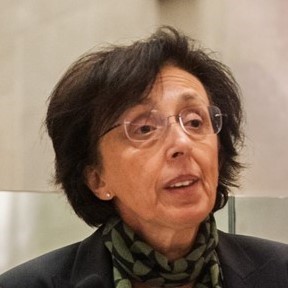- Lectures
- Institute of Atomic and Molecular Sciences
- Location
Dr. Poe Lecture Hall, IAMS (NTU Campus)
- Speaker Name
Prof. Giulia Galli (University of Chicago & Argonne National Laboratory, USA)
- State
Definitive
- Url
Abstract:
Which materials are best suited to harness the power of coherent quantum states for quantum applications, including computing, sensing, and communication? Can we predict their physical properties through theory and computation? Can we identify strategies and design rules to synthetize materials with controllable ‘quantum’ noise? I will address these questions for a specific platform for quantum technologies: spin defects in semiconductors and insulators. Electron spins can provide controllable qubits with long relaxation and coherence times, and they can be coupled to nuclear spins for long-lived quantum memories. I will present results of quantum simulations on hybrid quantum-classical architectures for three and two-dimensional solids and illustrate strategies to integrate theory, computation, and experiments.









 Home
Home

